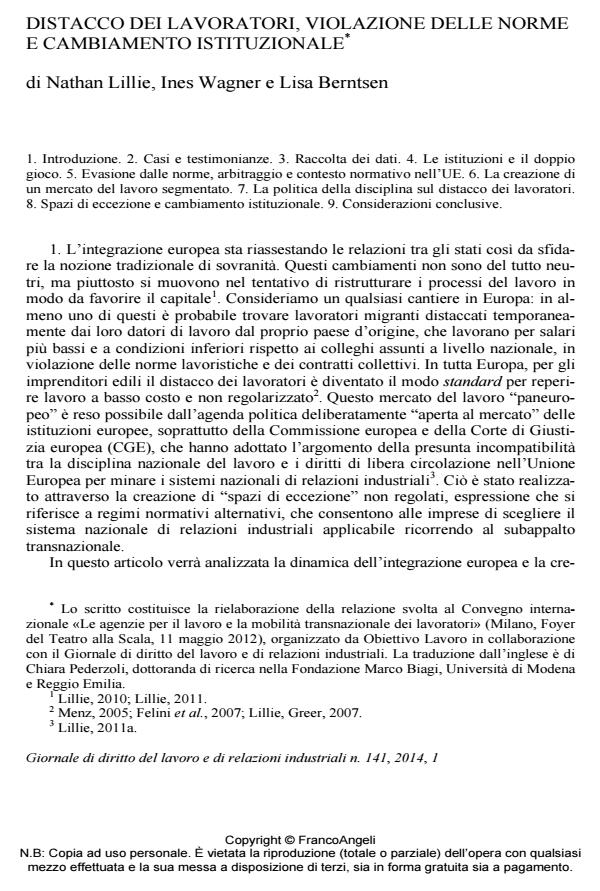Distacco dei lavoratori, violazione delle norme e cambiamento istituzionale
Journal title GIORNALE DI DIRITTO DEL LAVORO E DI RELAZIONI INDUSTRIALI
Author/s Nathan Lillie, Ines Wagner, Lisa Berntsen
Publishing Year 2014 Issue 2014/141
Language Italian Pages 20 P. 71-90 File size 770 KB
DOI 10.3280/GDL2014-141003
DOI is like a bar code for intellectual property: to have more infomation
click here
Below, you can see the article first page
If you want to buy this article in PDF format, you can do it, following the instructions to buy download credits

FrancoAngeli is member of Publishers International Linking Association, Inc (PILA), a not-for-profit association which run the CrossRef service enabling links to and from online scholarly content.
The essay focuses on the impact of European integration on the traditional notion of national sovereignty. The Authors conduct a research in the construction sector, through field interviews, in order to analyse the negative consequences related to the transnational posting of workers. The integrated European context is considered as a factor that allows the circumvention of the limits imposed by national regulations since it causes a reduction of costs and guarantees, which lead to a segmentation of the protections in the labour market in detriment of workers.
Keywords: Posted workers; Circumvention of law; European integration; Sovereignty; Labour market segmentation.
Nathan Lillie, Ines Wagner, Lisa Berntsen, Distacco dei lavoratori, violazione delle norme e cambiamento istituzionale in "GIORNALE DI DIRITTO DEL LAVORO E DI RELAZIONI INDUSTRIALI " 141/2014, pp 71-90, DOI: 10.3280/GDL2014-141003